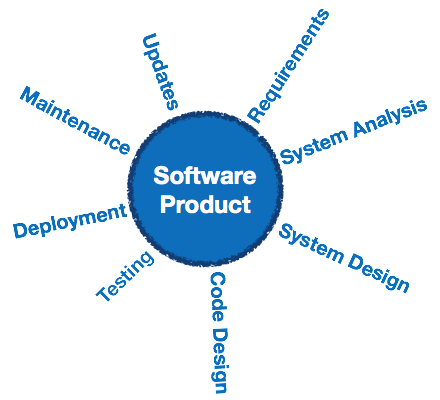Category: Software & IOT
Definitions and terminology controversies

Notable definitions of software engineering include:
- "The systematic application of scientific and technological knowledge, methods, and experience to the design, implementation, testing, and documentation of software"—The Bureau of Labor Statistics—IEEE Systems and software engineering – Vocabulary
- "The application of a systematic, disciplined, quantifiable approach to the development, operation, and maintenance of software"—IEEE Standard Glossary of Software Engineering Terminology
- "an engineering discipline that is concerned with all aspects of software production"—Ian Sommerville
- "the establishment and use of sound engineering principles in order to economically obtain software that is reliable and works efficiently on real machines"—Fritz Bauer
- "a branch of computer science that deals with the design, implementation, and maintenance of complex computer programs"—Merriam-Webster
- "'software engineering' encompasses not just the act of writing code, but all of the tools and processes an organization uses to build and maintain that code over time. [...] Software engineering can be thought of as 'programming integrated over time.'"—Software Engineering at Google
The term has also been used less formally:
- as the informal contemporary term for the broad range of activities that were formerly called computer programming and systems analysis;
- as the broad term for all aspects of the practice of computer programming, as opposed to the theory of computer programming, which is formally studied as a sub-discipline of computer science;
- as the term embodying the advocacy of a specific approach to computer programming, one that urges that it be treated as an engineering discipline rather than an art or a craft, and advocates the codification of recommended practices.
Etymology of "software engineer"
Margaret Hamilton promoted the term "software engineering" during her work on the Apollo program. The term "engineering" was used to acknowledge that the work should be taken just as seriously as other contributions toward the advancement of technology. Hamilton details her use of the term:
Suitability of the term[edit]
Individual commentators have disagreed sharply on how to define software engineering or its legitimacy as an engineering discipline. David Parnas has said that software engineering is, in fact, a form of engineering.[27][28] Steve McConnell has said that it is not, but that it should be.[29] Donald Knuth has said that programming is an art and a science.[30] Edsger W. Dijkstra claimed that the terms software engineering and software engineer have been misused[improper synthesis?] and should be considered harmful, particularly in the United States
.-
 A software Design and implementation
A software Design and implementation
Design and implementation...
Read more -
 Software engineering degree programs
Software engineering degree programs
Half of all practitioners...
Read more -
 Software design
Software design
Software design is about...
Read more -
 History about software
History about software
Beginning in the 1960s, s...
Read more -
 IOT Military applications
IOT Military applications
The Internet of Military...
Read more